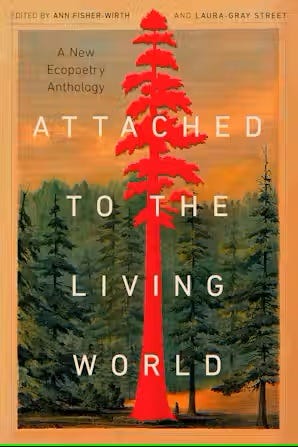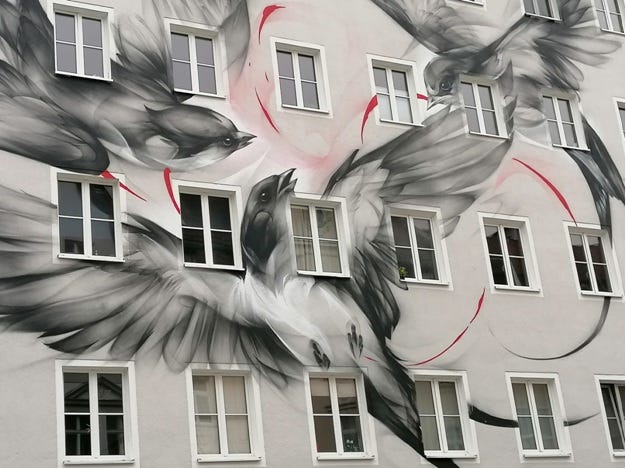Ann Fisher-Wirth ~ 3 Questions & a Poem
3 Questions and a Poem–in which one of my favorite poets is interviewed and shares a poem.
Question 1
What do you consider the three most important elements of a poem?
“A poem is a small (or large) machine made out of words,” William Carlos Williams once wrote. When I first encountered this remark I was put off, because it seems so opposite from Keats’s organic view of poetry as coming as naturally as leaves to a tree. But Williams is not really opposing Keats, and he is right: poems are made of nothing but words—not fine sentiments, not abstract truths. And so the words need to be alive, to be chosen with attention and precision. This involves also the interplay between words, as in repetition, assonance, consonance, anaphora, and so on. The words can be simple, they can be ornate; they can exemplify high diction, or middle, or low; what they cannot be is boring, clichéd, or sloppy.
Formal choices are crucial. A poem is a body. It needs to move, to breathe. How does it inhabit space and time; how does it inhabit the page? Does it employ rhyme and meter? Is it in free verse? In one verse paragraph, or in stanzas? What length and shape do the stanzas have? Are they regular (couplets, tercets, quatrains, and so forth), or are they of uneven lengths? Are they patterned, as in 3 lines-2 lines-3-lines-2 lines, etc.? Are the margins left-justified, or does the poem exist in a kind of open field composition, with floating margins, spaces between words, and so forth? How does sound interact with silence? What about line breaks? Are they syntactical? Asyntactical? The poet has great freedom in this, and sometimes it takes many revisions to discover a poem’s best form: how it will move best, to engage and communicate with the listener or reader.
And imagery is crucial. How does the poem ground itself in the world apprehended to our senses? Poetry thinks through the body. It is an experience; it brings to our bodies the body—or bodies—of the human and other-than-human world.
And sometimes, through all these elements, poetry opens our awareness of the sacred.
Attached to the Living World: A New Ecopoetry Anthology, which I coedited with Laura-Gray Street, has just been published by Trinity University Press. This updates the 2013 Ecopoetry Anthology with over 150 poems written and/or published since 2010 by American ecopoets not in the first book.
Question 2
What’s your best advice for writing poetry?
I don’t have just one best piece of advice for writing poetry. Here are several.
Read, read, read, read, read. Read anything, but especially read great literature, both prose and poetry.
Pay attention, in all sorts of ways, to all sorts of things. Once a student said to a well-known poet, “I feel like my poems are boring. What can I do?” This poet replied, “Live a more interesting life.” But this needn’t involve bungee jumping or Antarctic cruises. Look at Emily Dickinson, for example—one of the most interesting, and interested, poets ever. As Eudora Welty remarked, “All serious daring starts from within.”
Develop a tough skin. Realize that the poem is not you; if it is rejected (and it will be, lots of times, if you are submitting), that does not mean you are rejected. Realize that sometimes you will have to work on a poem for a long, long time before it finds it way, and also realize that you will very likely write a bunch of bad poems that may not be salvageable even with revision. I certainly have. Take criticism with an open heart if it is helpful, and learn to love cutting and revising.
But most of all, have fun with it. Find joy in it. Realize that your experience on this earth, and the ways in which you express it, matter.
Question 3
What’s the one poem that everyone should read today?
Oh goodness, it is impossible to choose one. But a favorite of mine for many years has been William Carlos Williams’s poem in Spring and All the first line of which is “By the road to the contagious hospital” (he didn’t originally title it). It celebrates the coming of spring, that muddy, leafless time right before “sluggish / dazed” spring becomes visible, when underground, things “grip down and begin to awaken.” But it also celebrates all who “enter the new world naked, cold, uncertain of all / save that they enter”—that is, all who are born. What a great poem to read as we move into spring.
& a Poem
Someone is having an argument
But why argue?
As the Dodo says, everybody has won
and all must have prizes.
So why not go out into the day
where, released from their cages,
doves soar into the sun, or the night
where the fox cries,
the night in which you are a speck
of a speck of a speck
in whirling light and space,
a flick of the fingers, pfuit!
vanished, like that, yet you breathe
and walk and love, and you stare
at the images sent by the Webb telescope,
the fierce and blinding splendor
of the cosmoses,
and it is given to you to be part of it.Poem and photograph first published in The Ilanot Review, Spring 2025
About the Author
Ann Fisher-Wirth’s eighth book of poems is a poetry/photography collaboration with Wilfried Raussert and translations of the poems into Spanish by the Women in Translation collective, Into the Chalice of Your Thoughts (U Guadalajara Press, 2023). Her seventh book is Paradise Is Jagged (Terrapin Books, 2023). With Laura-Gray Street, she coedited The Ecopoetry Anthology (Trinity UP, 2013) and Attached to the Living World: A New Ecopoetry Anthology (Trinity UP, 2025). A senior fellow of the Black Earth Institute, she has had Fulbrights to Switzerland and Sweden. Until the current State department threw funding into disarray, she planned to spend several weeks in April 2025 as a Fulbright Specialist at Cappadocia University, Turkey. She has had residencies at Djerassi, Hedgebrook, Storyknife, and elsewhere. She has received the 2023 Governor’s Award for Excellence in Literature and Poetry from the Mississippi Arts Commission, as well as three Mississippi Arts Commission Poetry Fellowships, the MS Institute of Arts Poetry Award, and fifteen Pushcart nominations. Ann retired in 2022 from the University of Mississippi, where she taught in the MFA program and directed the Environmental Studies program.
I’m on Facebook: Ann Fisher-Wirth
I’m at annfisherwirth.com (but my website is pretty out of date)





